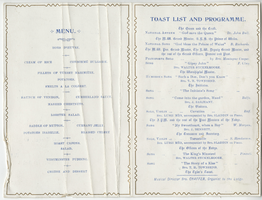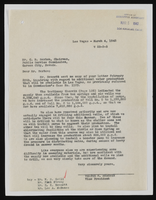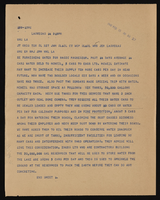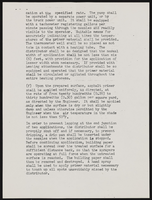Search the Special Collections and Archives Portal
Search Results
Anderson, George
George Robert “Bob” Anderson (1847?-1886?) was an early settler in Southern Nevada. He is best known for being the business partner of James Bernard Wilson. On January 31, 1875, they filed the deed to 320 acres located twenty-four miles west of Las Vegas, Nevada at the base of Sand Mountain in Cottonwood Valley. The property formerly known as ‘Williams Ranch’ or ‘Williams Homestead’ was renamed Sandstone Ranch. There they established a working cattle ranch and a goods delivery service.
Person

Film strip of individuals or Hoover Dam construction, image 011: photographic print
Date
1930 (year approximate) to 1939 (year approximate)
Archival Collection
Description
This photograph has three images. The first one (0272_0078) reads "'Form Raising Crew' - cont. - Whitie, Indiana 'Hoosier', lining the bolt up from inside. Always looking for a hammer, or bar, when it was time to climb over the top." The second one (0272_0079) reads, "Drilling jumbo in mouth of spillway tunnel," as a handwritten inscription. The third image (0272_0080) reads, "Nevada spillway with flood gates lowered. Notice size of man in gates. Constructed to prevent flood waters from overflowing dam. Each spillway - capable of passing 200,00 cu. ft. per second."
Image
Pagination
Refine my results
Content Type
Creator or Contributor
Subject
Archival Collection
Digital Project
Resource Type
Year
Material Type
Place
Language
Records Classification






